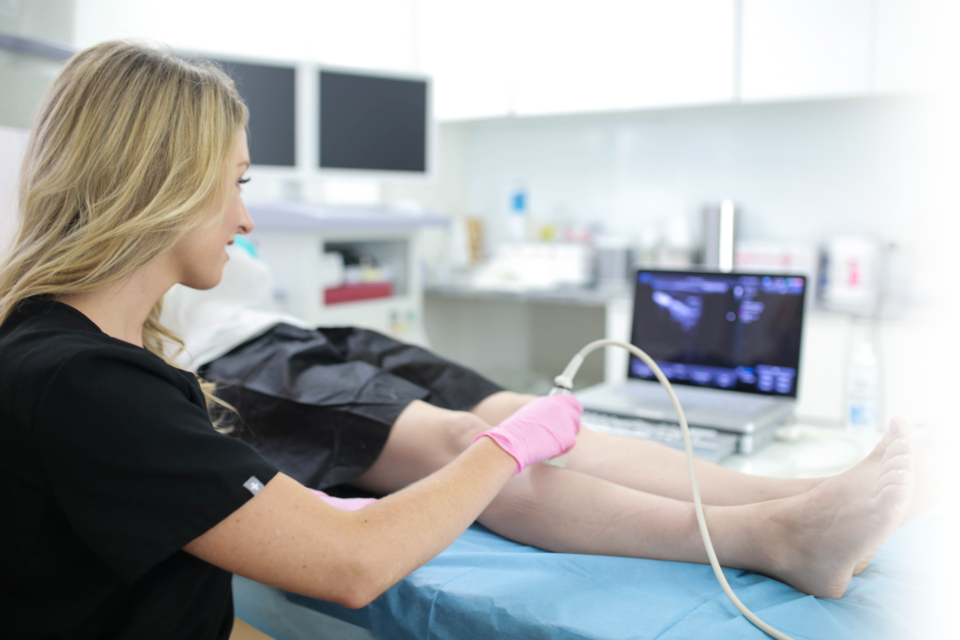Have you ever wondered, “What is a vein specialist called?” When it comes to vascular health, individuals often seek the expertise of medical professionals specializing in the diagnosis and treatment of vein-related conditions. The specialists in this field are known as phlebologists, playing a crucial role in maintaining the health of our circulatory system.
Table of Contents
Understanding The Role Of Phlebologists:
Phlebologists are medical doctors who focus on the diagnosis and management of venous disorders. Their expertise extends to conditions such as varicose veins, spider veins, deep vein thrombosis (DVT), and chronic venous insufficiency. These specialists undergo extensive training to become well-versed in the complexities of the circulatory system and the various disorders that can affect it.
Educational Background And Training:
To become a phlebologist, individuals typically follow a path similar to other medical professionals. They first complete a bachelor’s degree, followed by medical school, where they acquire a solid foundation in general medicine. After obtaining a medical degree, aspiring phlebologists pursue specialized training in venous disorders.
Many phlebologists choose to become board-certified by organizations such as the American Board of Venous and Lymphatic Medicine (ABVLM). Certification demonstrates a commitment to maintaining high standards of care and staying abreast of the latest advancements in the field.
Scope Of Practice:
Phlebologists play a crucial role in the healthcare system by addressing a range of venous conditions that can impact a person’s quality of life. They utilize various diagnostic tools, including ultrasound, to assess the health of veins and develop personalized treatment plans for their patients.
Common Procedures Performed By Phlebologists:
- Sclerotherapy: This minimally invasive procedure involves injecting a solution into affected veins, causing them to collapse and eventually fade. It is commonly used to treat spider veins and smaller varicose veins.
- Endovenous Laser Ablation (Evla): In this procedure, a laser fiber is inserted into the affected vein, delivering targeted energy to seal it off. EVLA is often used to treat larger varicose veins.
- Ambulatory Phlebectomy: Phlebologists may perform this outpatient procedure to remove superficial veins through tiny incisions. It is an effective method for treating bulging varicose veins.
- Compression Therapy: Phlebologists may recommend the use of compression stockings to improve blood flow and alleviate symptoms associated with venous disorders.
Collaboration With Other Specialists:
While phlebologists specialize in venous disorders, they often collaborate with other healthcare professionals, such as vascular surgeons and interventional radiologists, to ensure comprehensive care for their patients. This multidisciplinary approach allows for a more thorough evaluation of complex cases and a wider range of treatment options.
Importance Of Seeking Timely Treatment:
Understanding what a vein specialist is called highlights the significance of seeking timely treatment for venous conditions. Neglecting symptoms or delaying consultation with a phlebologist can lead to the progression of disorders, potentially causing complications such as blood clots or chronic venous insufficiency.
Conclusion:
In conclusion, a vein specialist is called a phlebologist, a medical professional dedicated to diagnosing and treating venous disorders. These specialists play a crucial role in maintaining vascular health, offering a range of treatments to address conditions such as varicose veins and deep vein thrombosis. By understanding the role of phlebologists and seeking timely treatment, individuals can take proactive steps towards preserving the health of their circulatory system. If you find yourself wondering about your vein health, don’t hesitate to consult with a qualified phlebologist to ensure comprehensive and personalized care.

